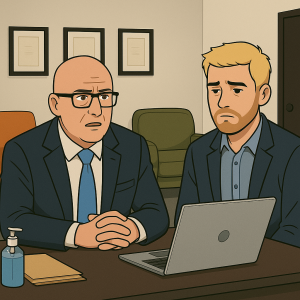1. Victim and Witness Rights
- New Hampshire Department of Justice – Victim Assistance
Provides legal rights information, crisis referrals, and victim compensation for expenses related to crime. - New Hampshire Coalition Against Domestic and Sexual Violence (NHCADSV)
Statewide hub for victim services, including advocacy and court support during legal proceedings.
2. Free and Low-Cost Legal Aid Programs
- New Hampshire Legal Aid
Offers free legal help and referrals for restraining orders, defamation claims, harassment, and abuse cases. - 603 Legal Aid
Provides legal assistance for low-income individuals across civil matters, including stalking and protective orders.
3. Relevant Laws
- Stalking: RSA § 633:3-a
What it means: Repeated behavior that places someone in fear for their safety or emotional well-being. Includes following, surveillance, and unwanted digital contact. - Harassment: RSA § 644:4
What it means: Covers repeated phone, electronic, or in-person contact that causes alarm or annoyance. May include threats or obscene communications. - Bullying: No adult criminal statute. Addressed under RSA § 193-F (Education Code)
What it means: Requires all school districts to implement anti-bullying and cyberbullying policies. Schools must report and investigate incidents. - Defamation: Civil tort, not criminal. Based on New Hampshire case law.
What it means: Victims may bring civil lawsuits for libel or slander if false statements damage their reputation. There is no criminal defamation statute in New Hampshire.
4. Reporting and Hotlines
- Call 911 for emergencies or threats to safety.
- Non-emergency complaints can be made to local police or court offices.
- NHCADSV – New Hampshire Coalition Against Domestic and Sexual Violence
Connects survivors to advocacy centers, legal support, and shelter services statewide. - Statewide Domestic Violence Hotline: 1-866-644-3574
24/7 confidential assistance for individuals facing abuse, stalking, or harassment in New Hampshire.
5. Support Organizations
- New Hampshire Coalition Against Domestic and Sexual Violence
Provides survivor-centered support, including safety planning, court advocacy, and emergency housing referrals. - YWCA New Hampshire
Offers legal support, trauma recovery services, and violence prevention programming in the Manchester region.
6. Civil Remedies and Protection Orders
New Hampshire courts allow individuals to file for Restraining Orders or Stalking Protective Orders. These can restrict contact, online communication, and proximity. Forms and court assistance are available through the court system or legal aid programs.
Important Note on Jurisdiction: If the individual you are seeking a restraining order against lives in a different state, your local court may not have jurisdiction to enforce that order. In most cases, you must file for protection in the state where that individual resides or where the conduct occurred. This applies even in situations involving online harassment, defamation, or stalking. Contact legal aid services in both your state and the other person’s state for guidance.
7. Youth and School Resources
- New Hampshire Department of Education – Bullying Prevention
Includes school policy guidance, reporting tools, and education requirements on bullying prevention.
8. Court Forms and Filing Help
- New Hampshire Judicial Branch – Protection Orders
Provides access to forms and guidance for stalking, harassment, and domestic violence restraining orders.
9. Online Safety and Privacy Tools
- NNEDV Tech Safety Toolkit
Offers resources for digital safety, device security, and protection from cyberstalking or online harassment.
Disclaimer: This information is provided for educational purposes only and does not constitute legal advice.




